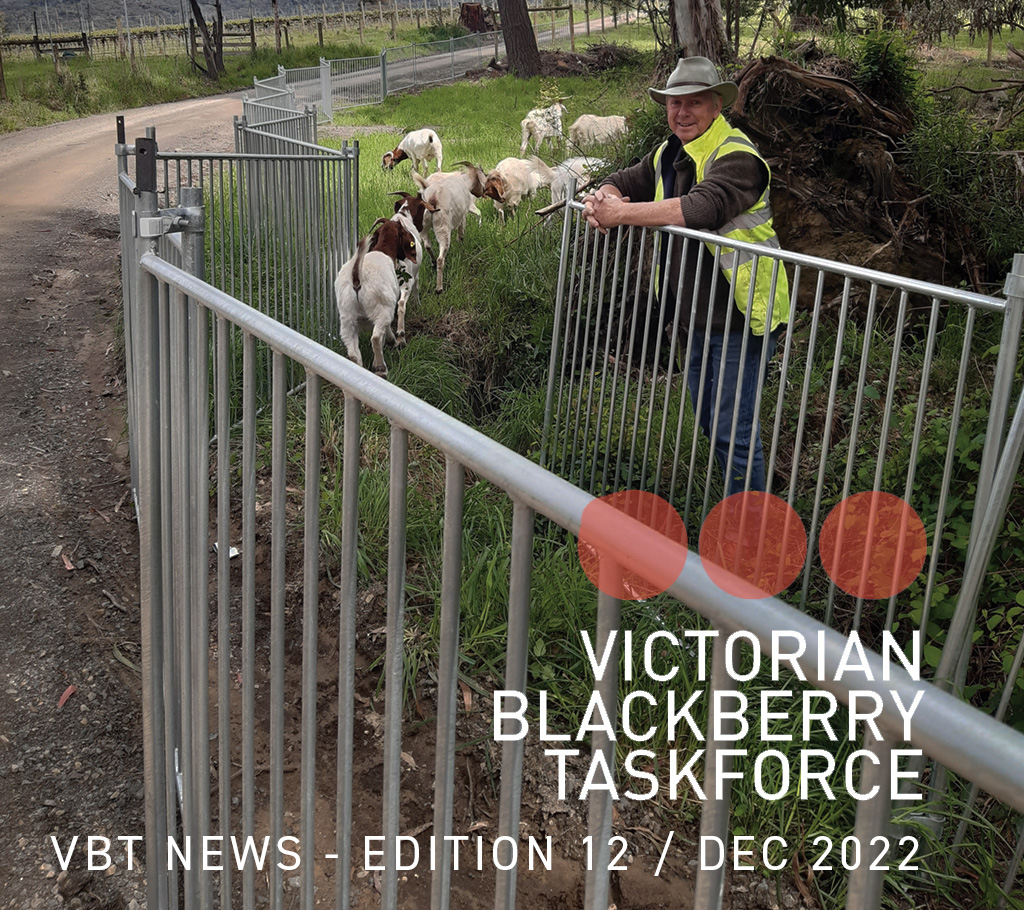VBT NEWS 12 – DECEMBER 2022
The latest edition of the VBT News is now available online.
Read the latest from the VBT, including information on the effectiveness of Glyphosate:
THE EFFECTIVENESS OF GLYPHOSATE ON BLACKBERRY
The VBT receives many enquiries about chemical control and is most commonly asked what the best product is to use.
All registered blackberry control chemicals have a role depending on the situation. It is important that landholders obtain expert information from a chemical supplier or an agronomist before selecting a chemical. Glyphosate bioactive is one such product that needs careful consideration.
This product is registered for use in and around waterways. Although less harmful on frogs than other registered blackberry control chemicals, there are potential adverse factors to consider. Feedback from landholders about this product is often about the need for constant follow-up, increased resistance, off-target kills and improved conditions for weed invasion.
One landholder who sprayed a property for several years with Glyphosate, according to the directions, said the chemical seemed less effective as time went by.
“I noticed that blackberries I sprayed regrew and needed follow-up the next year,” he said. “After receiving expert advice, I decided to use Triclopyr Picloram and results have improved remarkably and grasses were not damaged or killed either.”
Another landholder observed damage to non-target species: “I observed poor control rates on blackberry while at the same time killing other species such as Dianella, Bursaria, Acacias and summer-growing native grasses, leaving bare ground that was recolonised by other weed species.”
The VBT recognises that chemical control is one of the best ways of achieving long-term results but acknowledges that each chemical has limitations.
Please be aware, do your research and obtain the best advice for your unique situation.
Read all the latest in the December edition of the VBT News.
